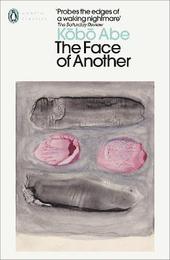
|
The Face of Another
Paperback / softback
Main Details
| Title |
The Face of Another
|
| Authors and Contributors |
By (author) Kobo Abe
|
|
Introduction by Kaori Nagai
|
|
Translated by E. Dale Saunders
|
| Series | Penguin Modern Classics |
|---|
| Physical Properties |
| Format:Paperback / softback | | Pages:256 | | Dimensions(mm): Height 198,Width 129 |
|
| Category/Genre | Modern and contemporary fiction (post c 1945) |
|---|
| ISBN/Barcode |
9780141188539
|
| Classifications | Dewey:895.635 |
|---|
| Audience | |
|---|
|
Publishing Details |
| Publisher |
Penguin Books Ltd
|
| Imprint |
Penguin Classics
|
| Publication Date |
28 September 2006 |
| Publication Country |
United Kingdom
|
Description
The narrator is a scientist hideously deformed in a laboratory accident - a man who has lost his face and, with it, connection to other people. Even his wife is now repulsed by him. His only entry back into the world is to create a mask so perfect as to be undetectable. But soon he finds that such mask is more than a disguise- it is an alternate self - a self that is capable of anything. A remorseless meditation on nature, identity, and the social contract, The Face Of Another is an intellectual horror story of the highest order.
Author Biography
Kobo Abe was born in Tokyo in 1924, grew up in Manchuria, and returned to Japan in his early twenties. Before his death in 1993, Abe was considered his country's foremost living novelist. His novels have earned many literary awards and prizes, and have all been bestsellers in Japan. They include THE WOMAN IN THE DUNES, THE ARK SAKURA, THE FACE OF ANOTHER, THE BOX MAN, and THE RUINED MAP.
Reviews"A fascinating book.... The world of Kobo Abe is one in which intellectual concepts have the emotional impact and motivating power of psychotic compulsions."-"Newsweek" "A major novel... Since The Woman in the Dunes, Kobo Abe's stock as a novelist has been very high. The Face of Another raises it still more."-"The Christian Science Monitor ""Probes the edges of a waking nightmare....The central, shaping metaphor of face and facelessness is brilliant, and Abe's relentless pursuit of its every implication is powerful."-"The Saturday Review"
|